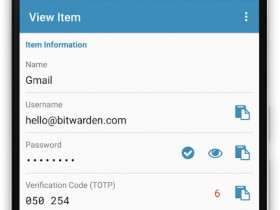

However, in 2014 they officially switched to a more traditional cloud-based syncing solution.

In the past, Firefox Sync used a pretty beefy system to secure your data. Unfortunately, Firefox Sync is another story. Provided you create a complex master password in addition to using the service, Firefox Password Manager should store your data securely using a 256-bit AES cipher. What's more, Firefox can only store web-based passwords, which means you won’t be able to use the password manager with non-web-based programs/information. For example, Firefox can’t generate strong passwords for you.

In addition, Firefox is also open source and doesn’t pass your personal data to their parent company like other mainstream browsers do. Without this option, other mainstream browser-based password managers are too much of a security risk to use. Currently, Firefox is the only browser that offers you the ability to encrypt all of your passwords with one master password.


 0 kommentar(er)
0 kommentar(er)
